Gambling is supposed to be fun. If it's not, ConnexOntario can help. 1-866-531-2600.
Badugi
The aim of the game is to make the best Badugi, so what’s a Badugi? It’s a four-card hand with no duplicates of rank or suit. The lower the better. There’s a lot more to it than that though, so read on to get the details.
What is Badugi Poker?
It’s poker, but maybe not as you know it. Badugi originated in Asia and is a variant of draw poker. It shares many similarities with Lowball, as it’s the lowest hand that wins. It differs significantly from most popular poker variants however, as the hand ranking system is different. The strongest hands are those that have no pairs and four low cards, one of each suit. This is known as a Badugi.
What are the Rules for Badugi?
Blinds
Badugi is played using forced bets known as blinds, with the player sitting to the left of the dealer button posting a small blind, and the player to their left posting the big blind. The small blind is usually half the size of the big blind.
The Deal
Each player is dealt four cards face down. The first round of betting then takes place, where you can call, raise or fold. Players still left in the hand after this first betting round now have the option to draw. The idea of the draw is that you can choose to discard any cards that you don’t want, and have them replaced with new ones that you hope will improve your hand. Click the cards you want to discard, and then click the ‘Discard’ button. You can opt to discard all four cards if you want. A second round of betting then takes place, with players having the option to bet or fold, unless there are no bets, in which case you can check. Once this round of betting is complete, another draw and betting round takes place. This is followed by a final draw and betting round, after which a showdown occurs if more than one player remains. The player with the best hand takes the pot.
Basic Strategy
The object of the game is to make a Badugi - a four-card low hand with four different suits, and no pairs. The best possible starting hand therefore is 4-3-2-A (with each card a different suit).
Badugi hands are ranked by their highest card, with aces always playing as a low card, and straights ignored. A player holding 9-8-4-3 of different suits (a ‘Nine Badugi’) would lose to an opponent holding 8-7-3-2 (an ‘Eight Badugi’) of different suits. Likewise, 6-3-2-A (a ‘Six Badugi’) would lose to 5-4-3-2 (a ‘Five Badugi’). If the top cards in the hand are tied, then the next-highest card is considered, and so on. Therefore, a 6-5-4-A (a ‘Six-Five Badugi’) would lose to a 6-4-3-2 (a ‘Six-Four Badugi’).
If a hand reaches showdown and no player has a Badugi, the player with the best three-card or two-card hand wins the pot. For example, if you hold 6h-4d-3s-Ah, you have two hearts, so the highest one is ignored, leaving a 4-3-A-x. That hand is known as a ‘Three Card Four’, and would lose to any Badugi, but it would beat 7h-5d-4d-3s (the highest diamond is ignored, making a ‘Three Card Seven’, 7-4-3-x). All three-card hands, in turn, beat all two-card hands. For example, Ad-As-2d-2c is a ‘Two-Card Deuce’, 2-A-X-X, because there are two pairs. It’s even possible to have a ‘One Card’ hand; for example, Qd-Jd-8d-4d has four cards of the same suit, so three of them are ignored, leaving just the 4d, a ‘One-Card Four’.
Badugi Hand Rankings
The following Badugi hands (not a complete list) are ranked from least powerful (#1, which will rarely win the pot) to most powerful (#18, the nuts):
One-card hands
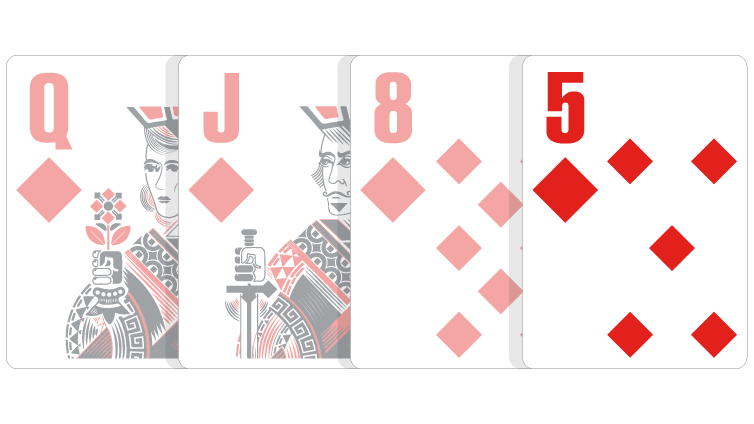
[5-x-x-x] (three of the diamonds are ignored)
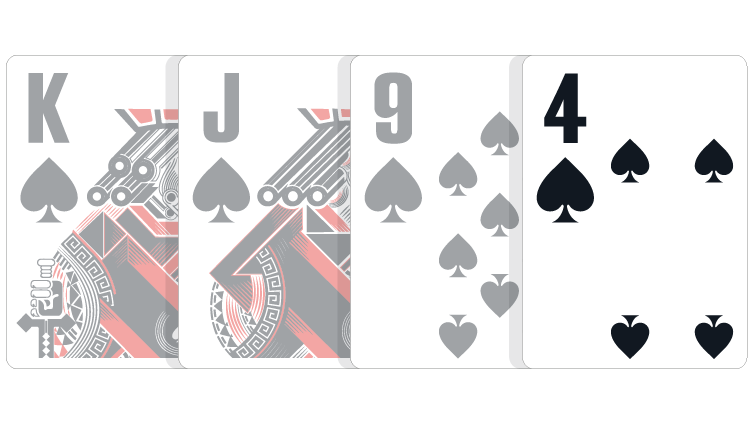
[4-x-x-x] (three of the spades are ignored)
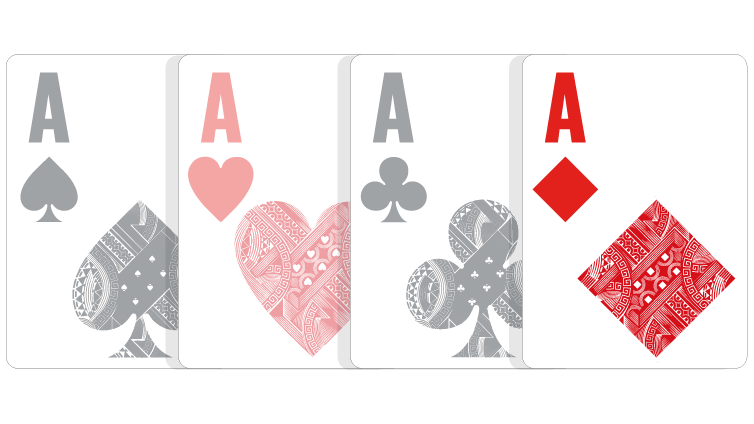
[A-x-x-x] (three of the Aces are ignored)
Two-card hands
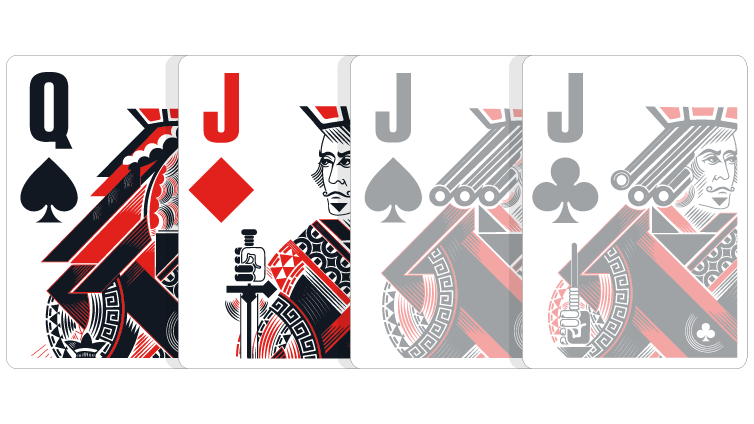
[Q-J-x-x] (the Js and another Jack are ignored)
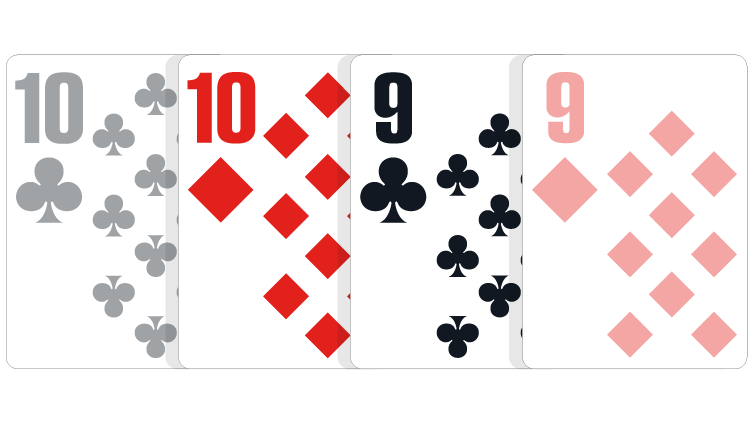
[T-9-x-x] (one Ten and the Nine of the other suit are ignored)
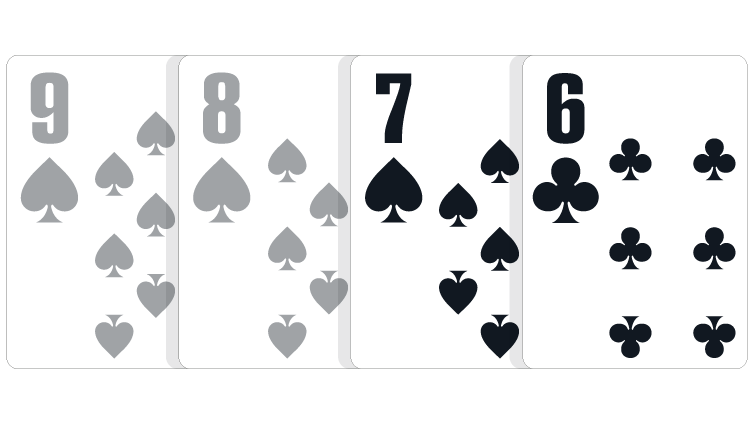
[7-6-x-x] (the two highest spades are ignored)
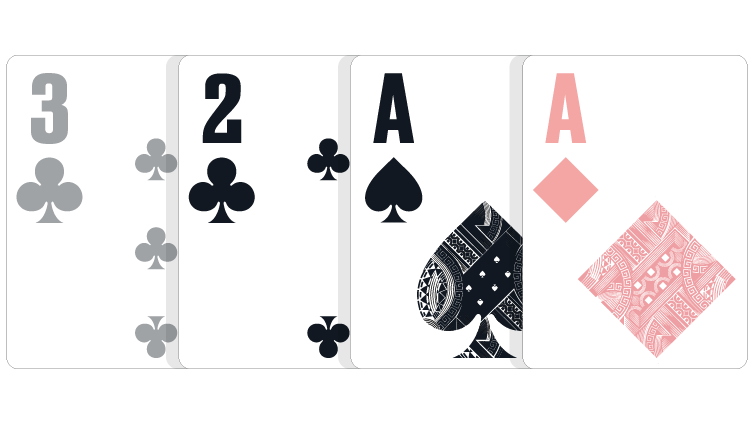
[2-A-x-x] (the 3c and one Ace are ignored)
Three-card hands
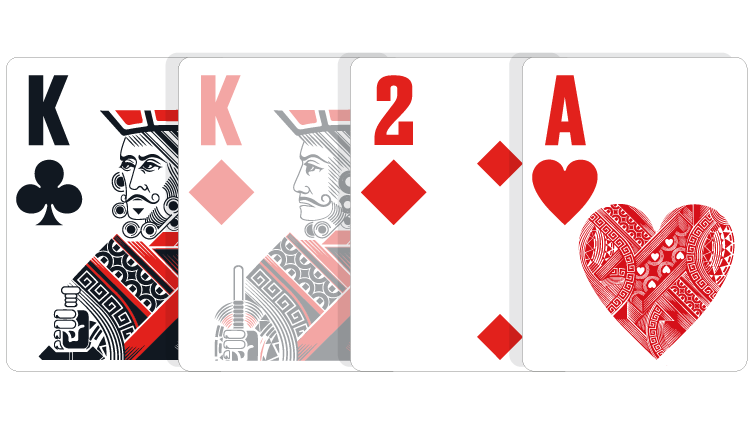
[K-2-A-x] (the Kd is ignored)
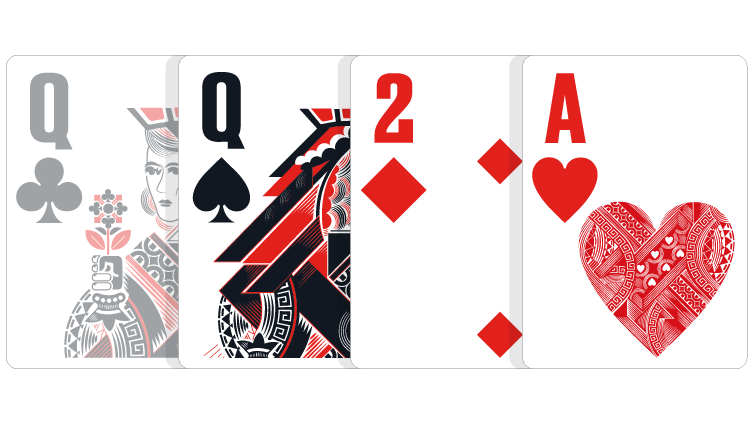
[Q-2-A-x] (a Queen is ignored)
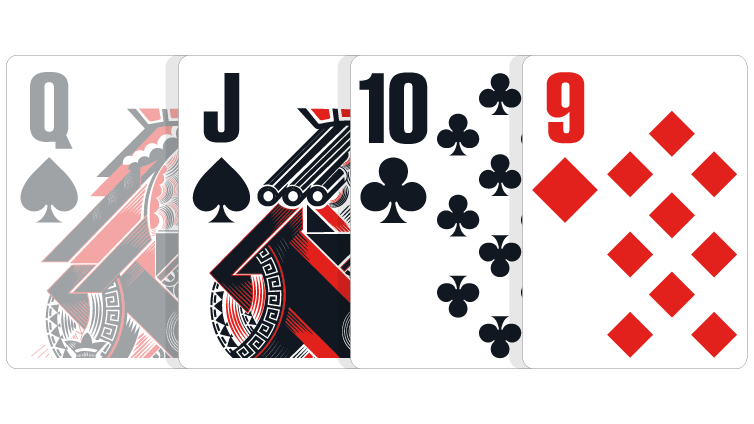
[J-T-9-x] (the Qs is ignored)
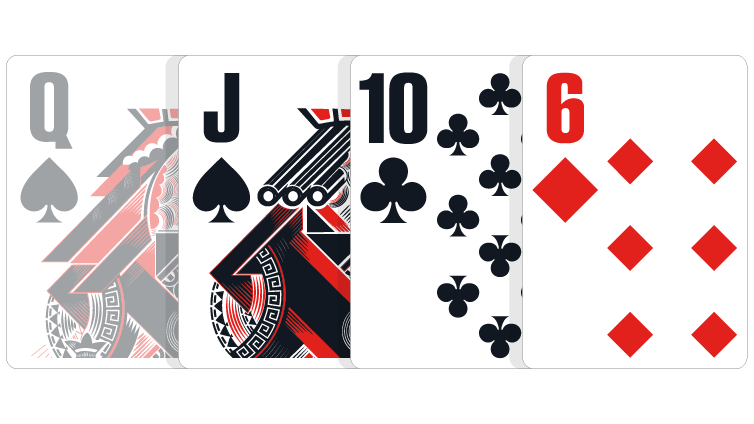
[J-T-6-x] (the Qs is ignored)
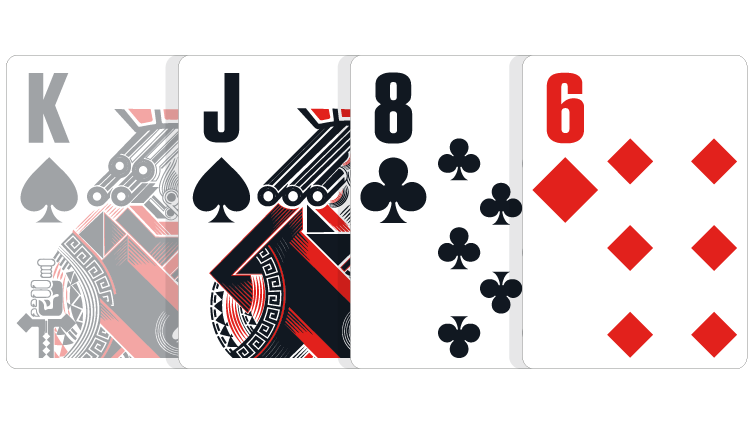
[J-8-6-x] (the Ks is ignored)
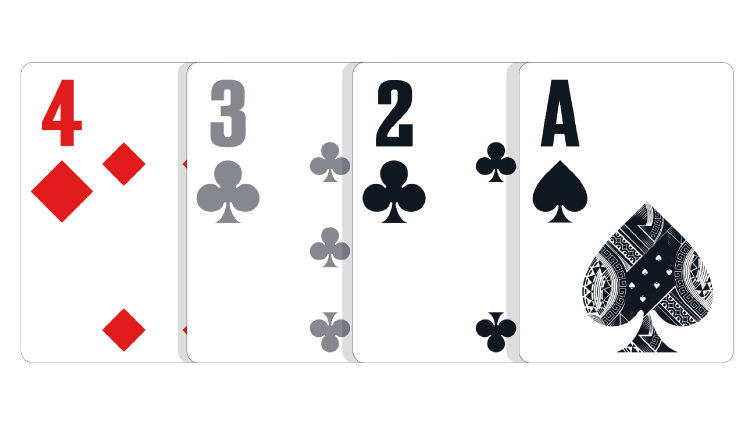
[4-2-A-x] (the 3c is ignored)
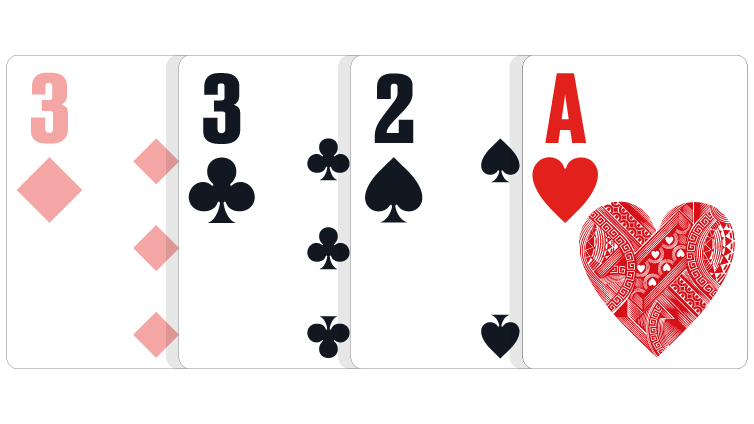
[3-2-A-x] (a Three is ignored)
Badugi
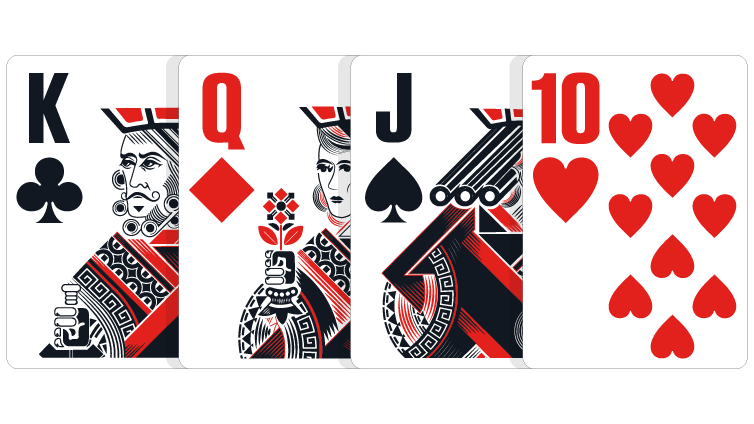
[K-Q-J-T] (the worst Badugi)
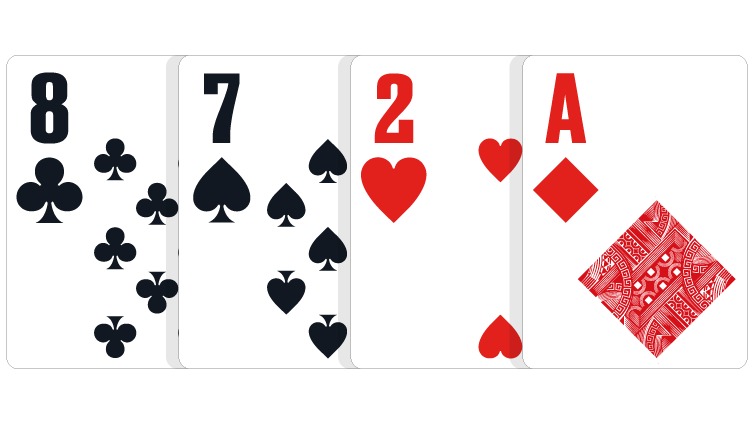
[8-7-2-A]
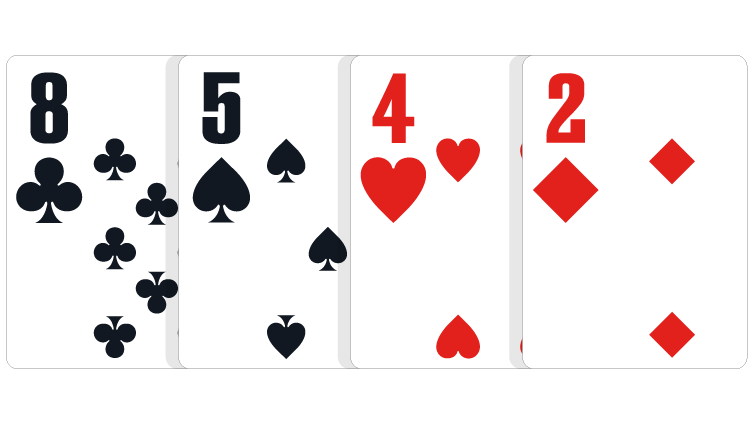
[8-5-4-2]
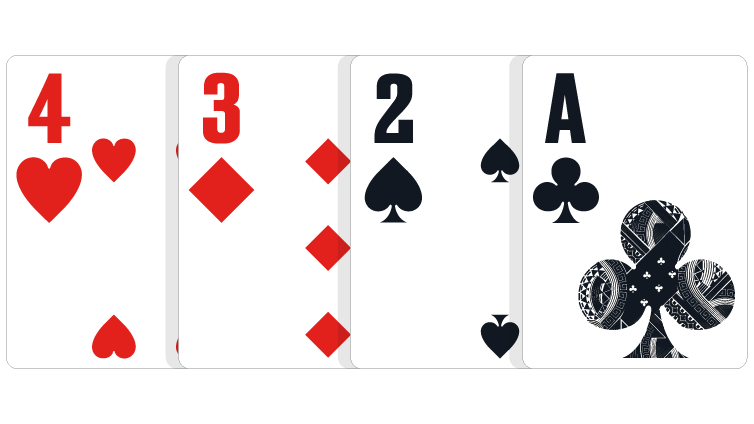
[4-3-2-A] (the best Badugi)
It’s important to think about position, as the player last to act is able to gain information on what hands their opponent may have, based on the number of cards they have discarded. If a player who acts before you does not discard any cards, it’s likely that they already have a strong hand.
As well as Badugi, we also offer many other poker variants. See our Poker Games page to learn more.
Additional Information
Badugi is usually played as fixed limit which means the amount a player can bet and raise is predetermined. You won’t be able to go all-in as much as you can in No Limit games, unless you have fewer chips than what the limit is.
The best hand in Badugi is 4-3-2-A with no matching suits. Unlike a lot of other games, like Texas Hold’em, the lowest hand is considered the best. To be classed as a Badugi, your hand must not have any matching suits or ranks. You can still win the pot without a Badugi but only if your opponent doesn’t have one either and your hand is better, or you make them fold.


